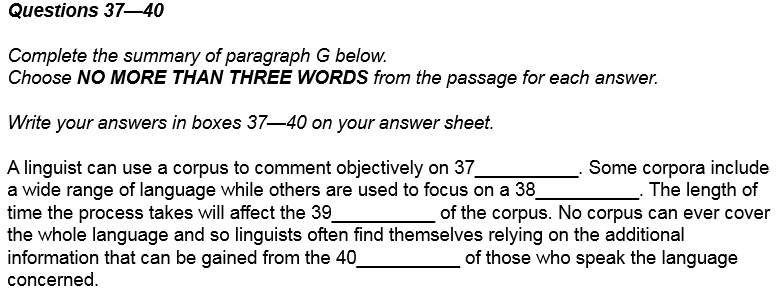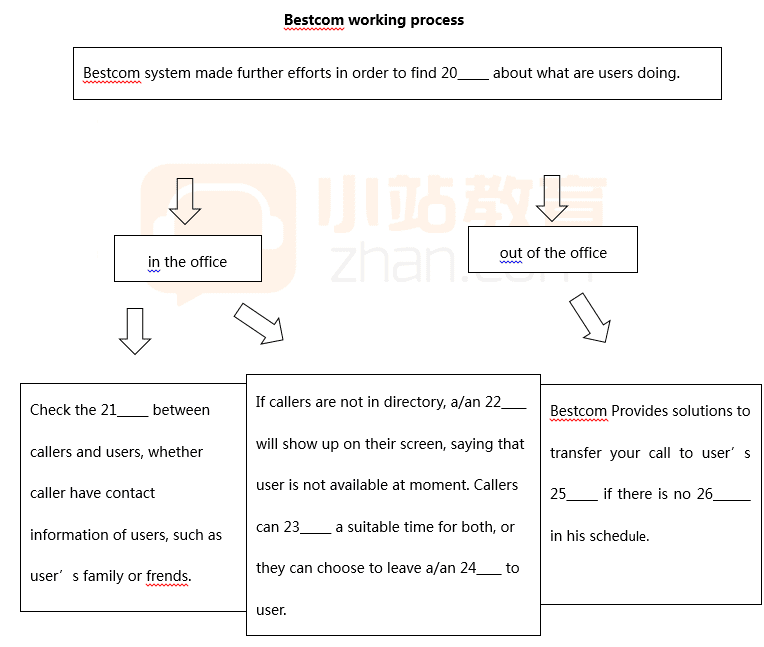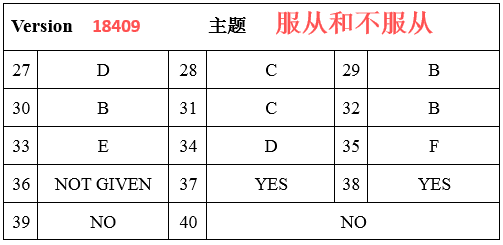gre考试中题目非常多,但始终不变的就是gre考试单词,你知道如何在gre考试阅读文章拿到更多分数吗?下面小编就和大家分享gre考试阅读文章常见词解析,希望能够帮助到大家,来欣赏一下吧。
gre考试阅读文章常见词解析
qualify:
1. to reduce from a general to a particular or restricted form.
2. to be or become fit (as for an office), meet the required standard.
以上是韦氏词典上给出的两个gre考试单词解释。通常我们比较熟悉的是后者——“合格,有资格”,但对前者却不太熟悉——“限定”。而很不幸的是,GRE考试中对这个概念所考察的,通常都是前面这个含义。所以,我们需要对这个含义有明确的认识。
相信很多同学就算看了上面的解释,还会感觉很模糊,所以,首先,我们对qualify的第一个含义进行一个比较准确的说明。
所谓限定,说得更加明确一点,就是把前面表达过的观点进行更进一步的阐释和说明,只不过这种阐释的方式比较特殊:通过把前面观点成立的范围进行缩小的方式,来使得观点合理性变大。
用能听得懂的话来说就是:前面的观点把话说得太大,会受到大家的质疑甚至围攻;为了缓解这种尴尬的情况,后面就对前面的观点进行各种补救,其中一种方法就是向大家表明“前面的观点是正确的,但是其成立的范围可能没有大家想的那么大,只是在很小的范围内才成立”。这样,就能避免大家对前面观点的误解。
举个例子:
我是英语最好的——在我家里。
前面是观点,后面是限定。如果我直接抛出“我是英语最好的”的观点,很多人会喷我的;但当我说出成立的范围“在我家里”的时候,估计就没人会质疑了(我家其他人都不是英语专业的)。这个时候,后面的内容,就是限定,也就是qualify。前面的观点是general,而后面的范围则是restricted form。
这种情况,在gre考试阅读文章当中时有运用,举个例子:
When the same parameters and quantitative theory are used to analyze both termite colonies and troops of rhesus macaques, we will have a unified science of sociobiology. I have been increasingly impressed with the functional similarities between insect and vertebrate societies and less so with the structural differences that seem, at first glance, to constitute such an immense gulf between them. Consider termites and macaques...
在这篇gre考试文章中,蓝色字体表达的就是一个基本观点,但这个基本观点容易被人误解:termite和rhesus macaques两者的差异如此巨大,怎么能有unified science of sociobiology呢?因此,读者对这个内容可能会产生误解。为了避免这种误解,后面的红色字体才做出了说明:我并不是从structural difference角度来研究的,而是从functional similarity的角度来研究的。这样一来,原来unified的general的观点,就变成了functional similarity这个restricted form了。
不过,前面所说的定义太过专业。有时候,GRE阅读对这个概念的运用并不是那么严格。有时候,GRE阅读题干或者选项中如果出现这个概念,指的只不过是“辩证”这个含义:使得前面的观点不那么绝对。(注意,这里说的是“有时候”,也就是说,还有“其他时候,在题干和选项中的qualify取的就是那个专业的定义”。)
再来看一个阅读题目。先来看一下题干:
Select the sentence that includes a qualification of the author's attitude toward the study of the historians as they are described in the passage.
这里面,我们只需要理解成“辩证”的意思,足够了。也就是说,我们要选的这个句子里,提到了the author对historians的正反两方面的态度。明白题意之后,看下文章(文章比较长,大家着重注意蓝色和红色字体):
Influenced by the view of some twentieth-century feminists that women's position within the family is one of the central factors determining women's social position, some historians have underestimated the significance of the woman suffrage movement. These historians contend that nineteenth-century suffragism was less radical and, hence, less important than, for example, the moral reform movement or domestic feminism—two nineteenth-century movements in which women struggled for more power and autonomy within the family. True, by emphasizing these struggles, such historians have broadened the conventional view of nineteenth-century feminism, but they do a historical disservice to suffragism.Nineteenth-century feminists and anti-feminist alike perceived the suffragists' demand for enfranchisement as the most radical element in women's protest, in part because suffragists were demanding power that was not based on the institution of the family, women's traditional sphere. When evaluating nineteenth-century feminism as a social force, contemporary historians should consider the perceptions of actual participants in the historical events.
其中,蓝色字体表达的是对这些historian的正面的态度,而红色字体则表达的是负面的态度,所以这个句子就是我们要找的句子。这里,qualify可以简单理解成“辩证”的意思。当然,如果深入理解,我们会发现,其实qualify的专业定义里,也略微带着“辩证”的色彩。所以,两者并不算矛盾。
再看一个填空题,体会一下GRE考试对qualify这个概念有多么喜爱。
As he has matured as a scholar, Felmar has come to see the merit of qualification. His conclusions, which early in his career he (i)_____ , are now often (ii)______ .
Blank (i)Blank (ii)
(A) stated as absolute(D) hedged
(B) refused to reveal(E) simplified
(C) backed up extensively(F) reiterated
这个题目中,如果不理解qualification这个词的具体含义,理解起来有很大的难度。结合前面讲过的两个含义——from general to restricted form和“辩证”,这里的qualification可以理解为“收敛”或者“有条件地认可”等含义,总之,就是不那么绝对,要有辩证性,能够看到事物不同角度的合理性。所以,这句话的意思是:
随着他作为学者的成熟度的提高,Felmar开始看到“有条件地认可”的好处。对于在早期职业生涯中被他说成绝对正确的那些结论,现在通常都是在有限定、有范围的情况下才被认可。
总之,qualify和qualification这个概念,在GRE的考试中经常容易考察:不仅是明确出现这两个词,还可能会考察我们对文章逻辑关系的深层理解。希望本文能够对大家理解这个概念有所帮助。
GRE阅读练习:长江水道
Since the 1970s, archaeol.ical sites in China's Yangtze River region have yielded evidence of sophisticated rice-farming societies that predate signs of rice cultivation elsewhere in East Asia by a thousand years. Before this evidence was discovered, it had generally been assumed that rice farming began farther to the south. This scenario was based both on the ge.raphic range of wild or free-living rice, which was not thought to extend as far north as the Yangtze, and on archaeol.ical records of very early domestic rice from Southeast Asia and India (now known to be not so old as first reported). Proponents of the southern-origin theory point out that early rice-farming societies along the Yangtze were already highly developed and that evidence for the first stage of rice cultivation is missing. They argue that the first hunter-gatherers to develop rice agriculture must have done so in this southern zone, within the apparent present-day ge.raphic range of wild rice.
Yet while most stands of wild rice reported in a 1984 survey were concentrated to the south of the Yangtze drainage, two northern outlier populations were also discovered in provinces along the middle and lower Yangtze, evidence that the Yangtze wetlands may fall within both the present-day and the historical ge.raphic ranges of rice's wild ancestor.
2.1. Which of the following, if true, would most clearly undermine the conclusion that the author makes based on the 1984 survey?
A. Areas south of the Yangtze basin currently have less wild-rice habitat than they once did.
B. Surveys since 1984 have shown wild rice populations along the upper Yangtze as well as along the middle and lower Yangtze.
C. The populations of wild rice along the Yangtze represent strains of wild rice that migrated to the north relatively recently.
D. Early rice-farming societies along the Yangtze were not as highly developed as archaeol.ists once thought.
E. In East Asia, the historical ge.raphic range of wild rice was more extensive than the present-day ge.raphic range is.
2.2. Based on the passage, skeptics of the idea that rice cultivation began in the Yangtze River region can point to which of the following for support?
A. Lack of evidence supporting the existence of rice-farming societies along the Yangtze at an early date
B. Lack of evidence regarding the initial stages of rice cultivation in the Yangtze region
C. Recent discoveries pertaining to the historical ge.raphic range of rice's wild ancestor
D. New information regarding the dates of very early domestic rice from Southeast Asia
E. New theories pertaining to how hunter-gatherers first developed rice agriculture in East Asia
2. 3. Which of the following can be inferred from the passage about the “southern-origin theory”?
A. The theory is based on an unconventional understanding of how hunter-gatherers first developed rice agriculture.
B. The theory fails to take into account the apparent fact that evidence for the first stage of rice cultivation in the north is missing.
C. The theory was developed primarily in response to a 1984 survey of wild rice's ge.raphic range.
D. Reassessment of the dates of some archaeol.ical evidence has undermined support for the theory.
E. Evidence of sophisticated rice-farming societies in the Yangtze region provides support for the theory.
GRE阅读:分段式解读
第一步、解剖文章的第1段
积极主动地解读文章的第1段,阅读时尽量记住作者提出的问题(现象或观点),和一些关于文章内容的概念和词汇,如这篇文章讲的是生物化学,日本企业文化还是黑人运动。文章的论题是什么,作者想说什么?
第二步、在脑子里面形成一个作者思路图
在脑子里或者在草稿纸上画一个文章的结构思路题。各个段落的目的是什么,主题又是什么?再次提醒,GRE考察的是你的答题能力而非阅读能力。
你不必完全掌握整篇GRE阅读文章,了解文章中的每一个细节。(其实,你也没有那么多时间)。相反,你应该只读文章段落的第1句,而快速浏览其余部分。当你“读”完这篇文章时,你就能对文章的结构思路有总体的把握。
第三步、通览文章时,留意语气词和过渡词
在快速阅读文章时,特别留意段落开头或者结尾可能出现的语气词和过渡词。这样做有助于你对作者思路的把握,从而快速掌握文章大意。
第四步、停下来,总结一下文章大意
在回答问题前,花几秒钟总结一下文章的思路和主题。
第五步、开始答题
根据你对GRE阅读文章的整体思路来答题。将问题(或选项)定位到文章中具体的某个段落甚至具体的句子。这里,你可以比第3个步骤更仔细。
像中文阅读一样,解析GRE阅读文章的结构,每一个段落、或者是有重点承接关系的词汇都不是浪费的,所以是不是能把握这些、并且解析它们是解决GRE阅读的关键钥匙。
gre考试阅读文章常见词解析
上一篇:gre考试阅读部分怎么练习出分
下一篇:返回列表





